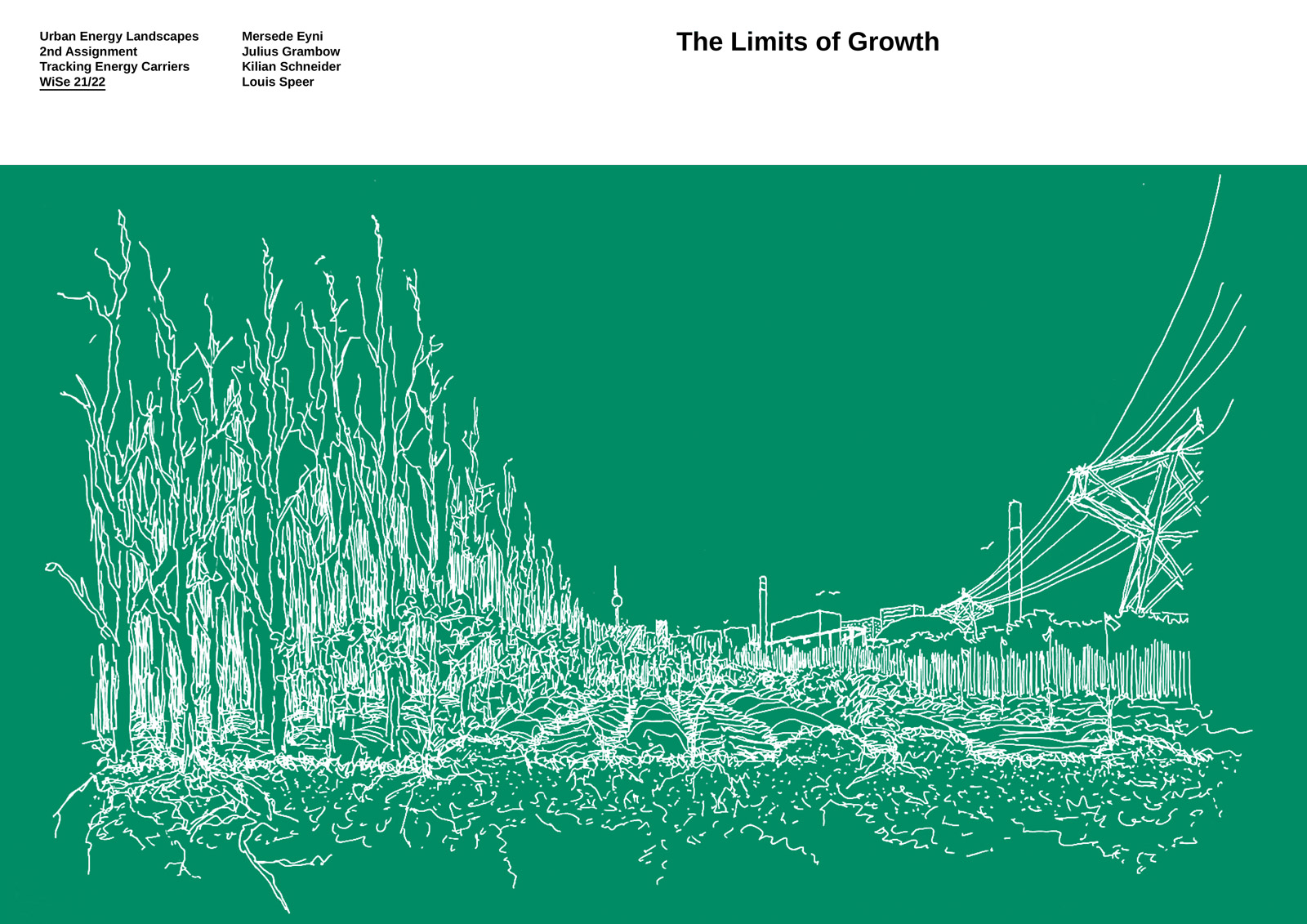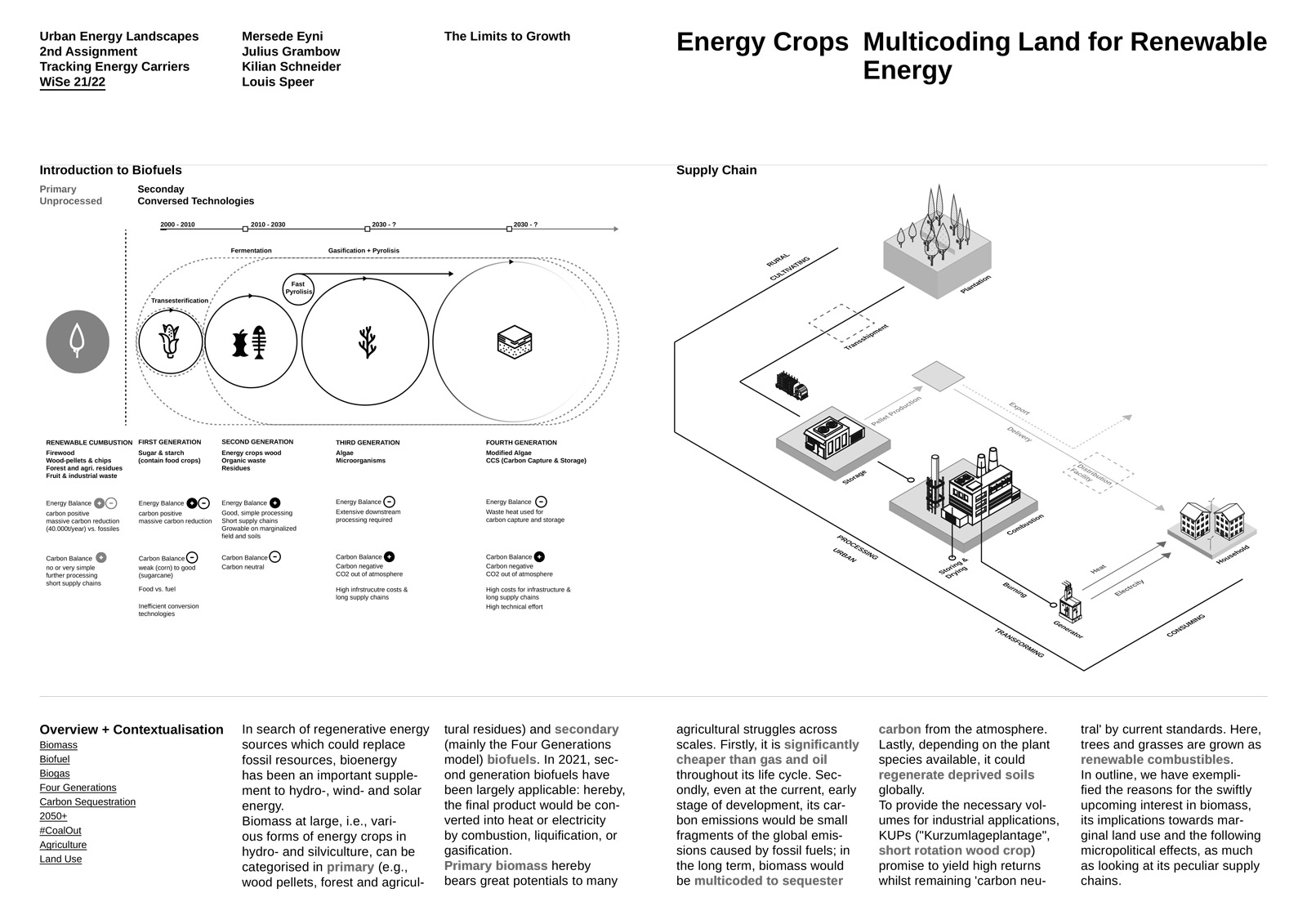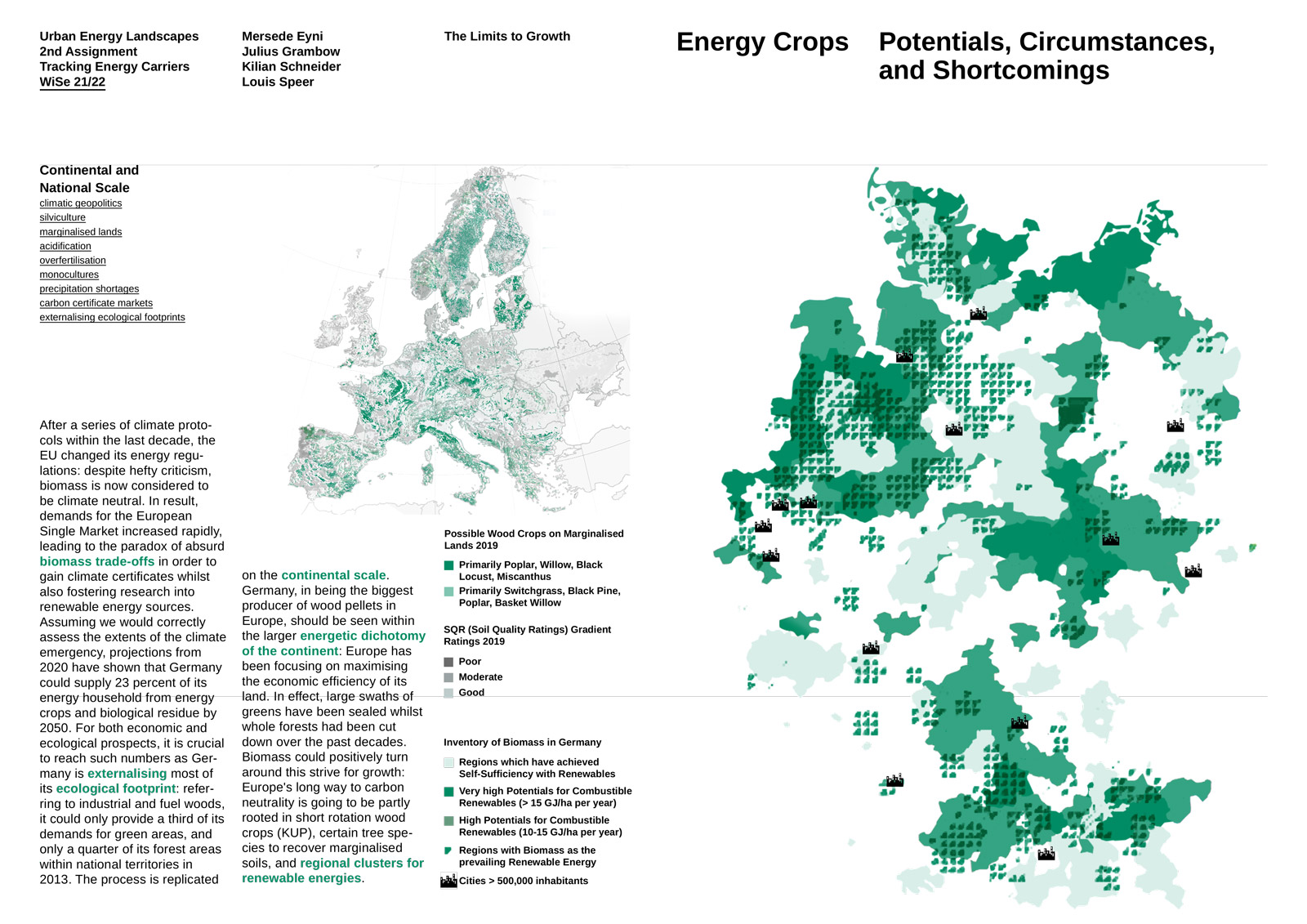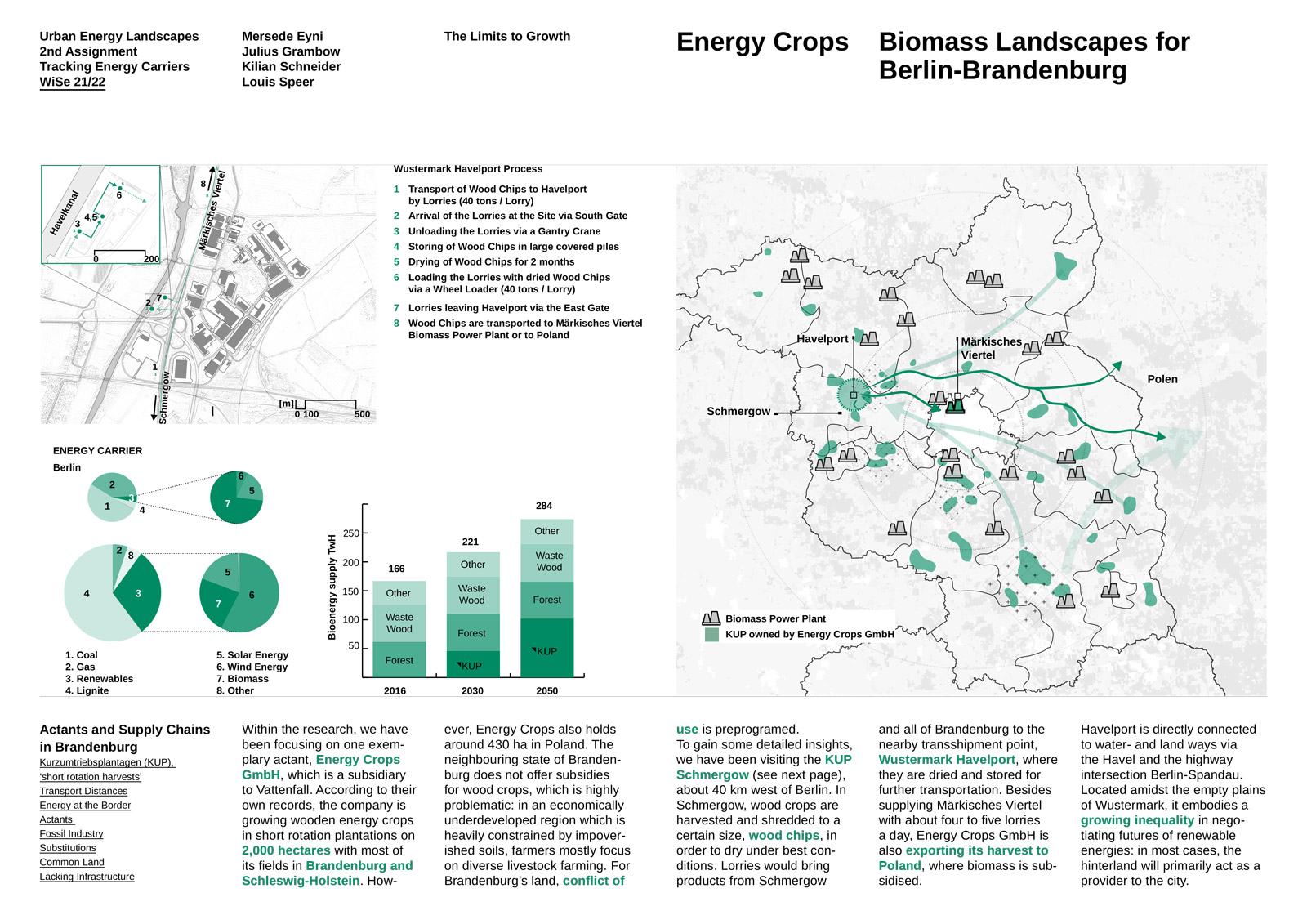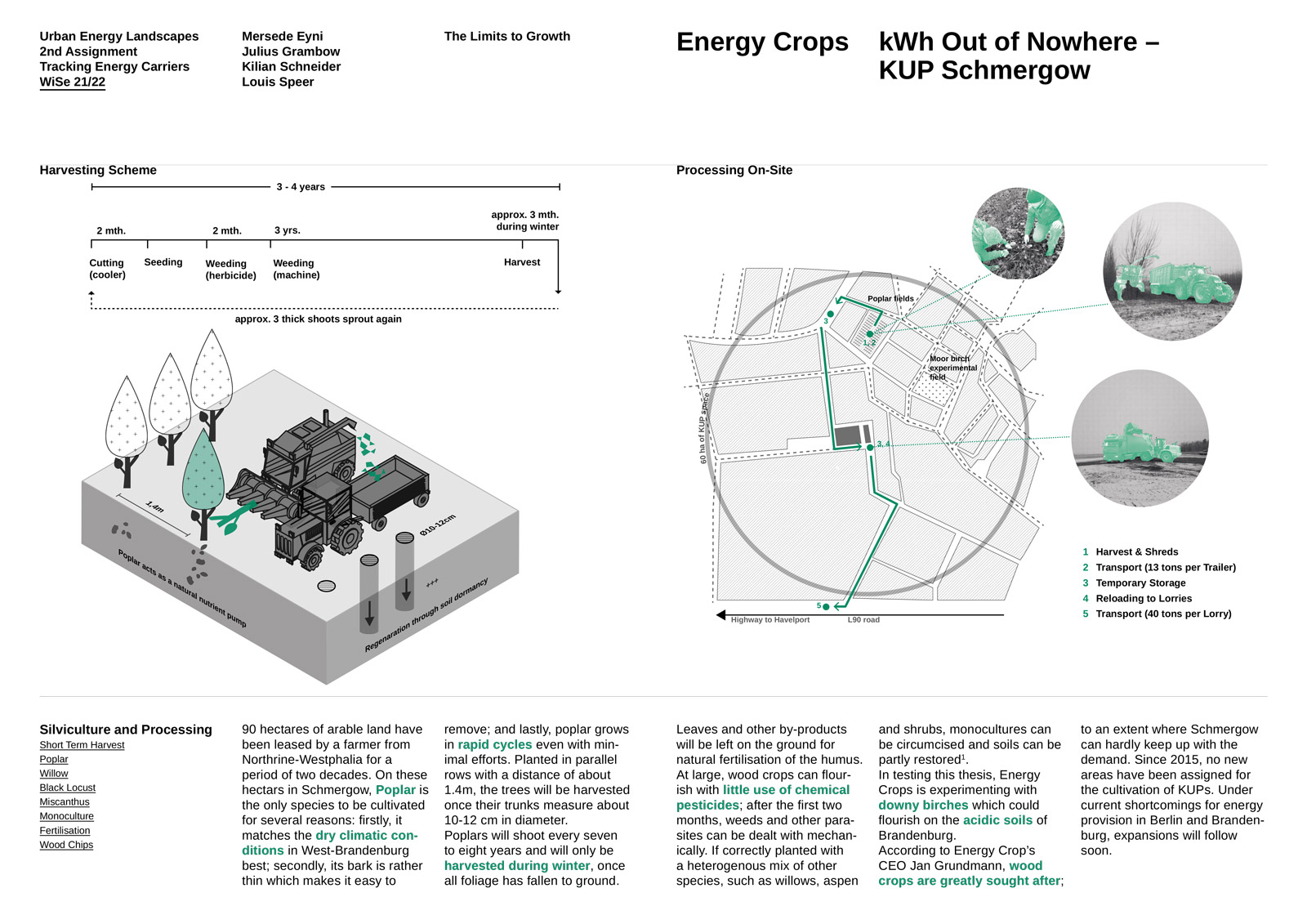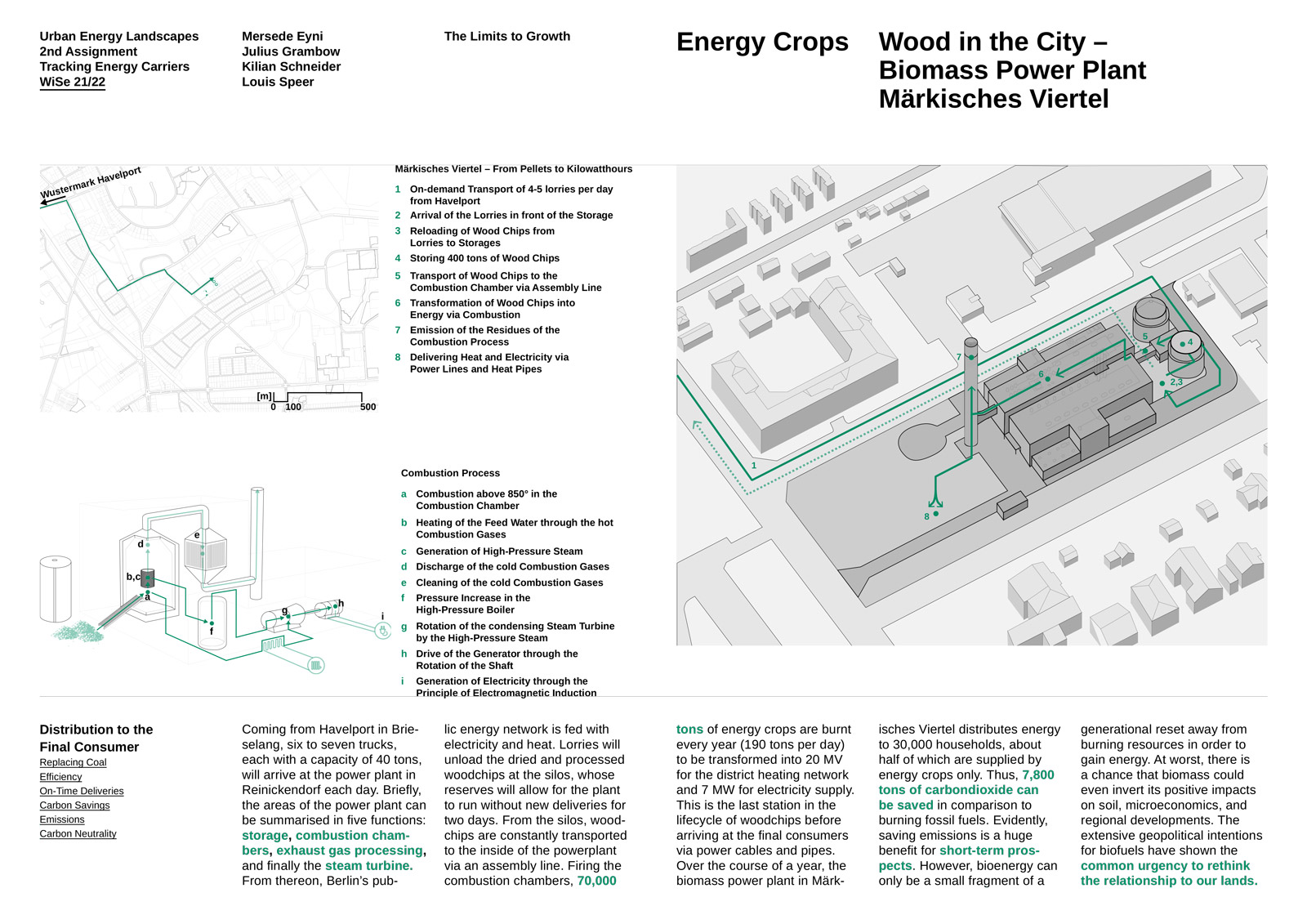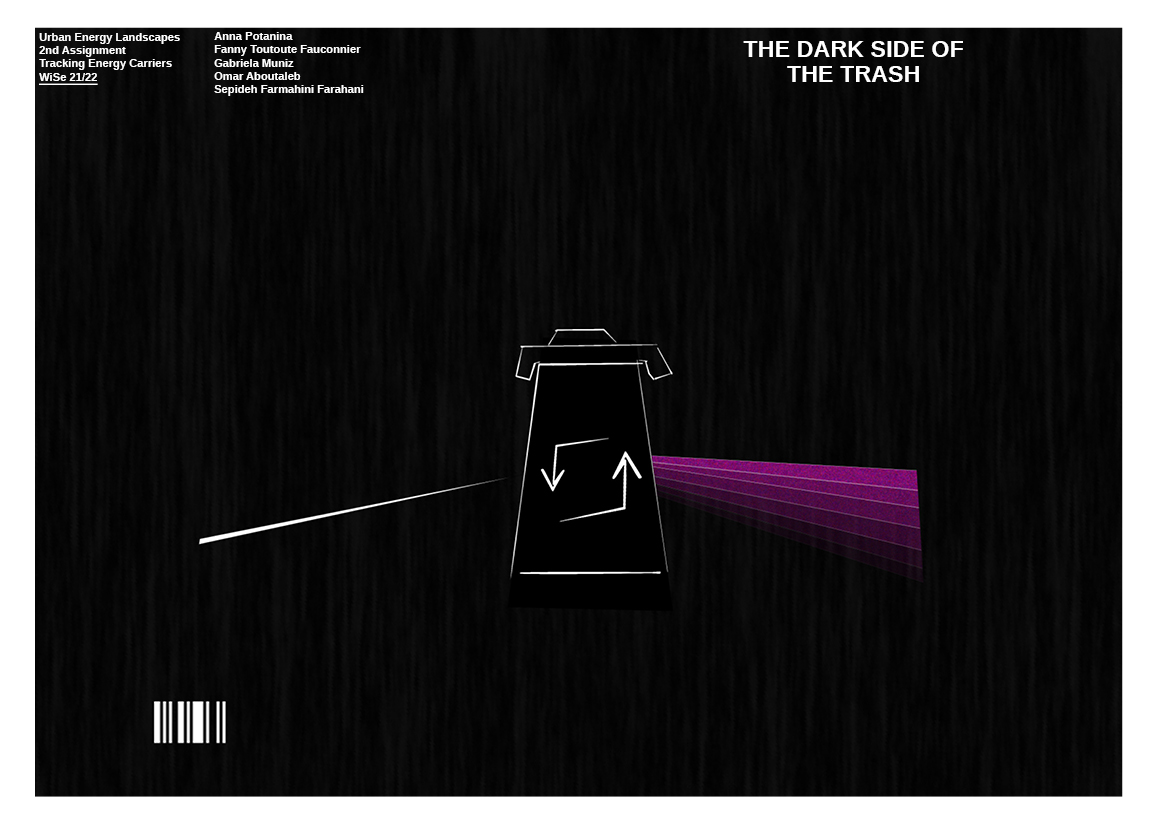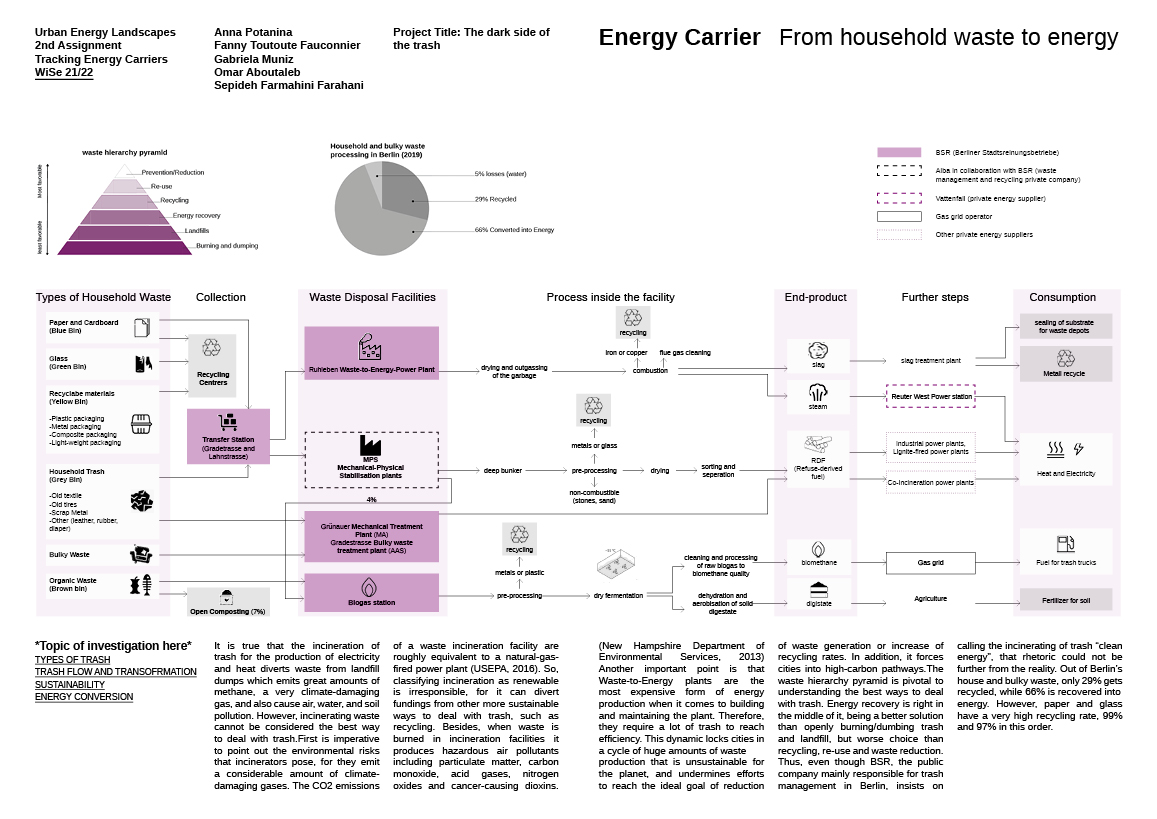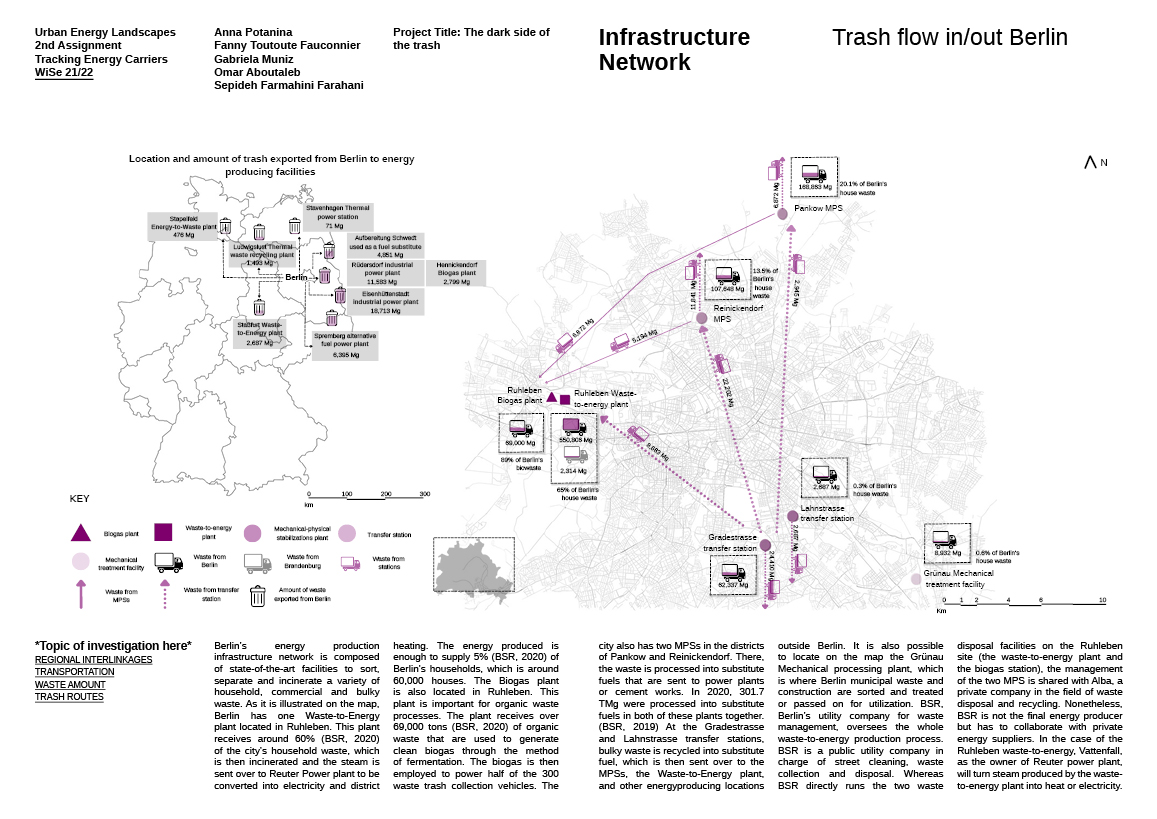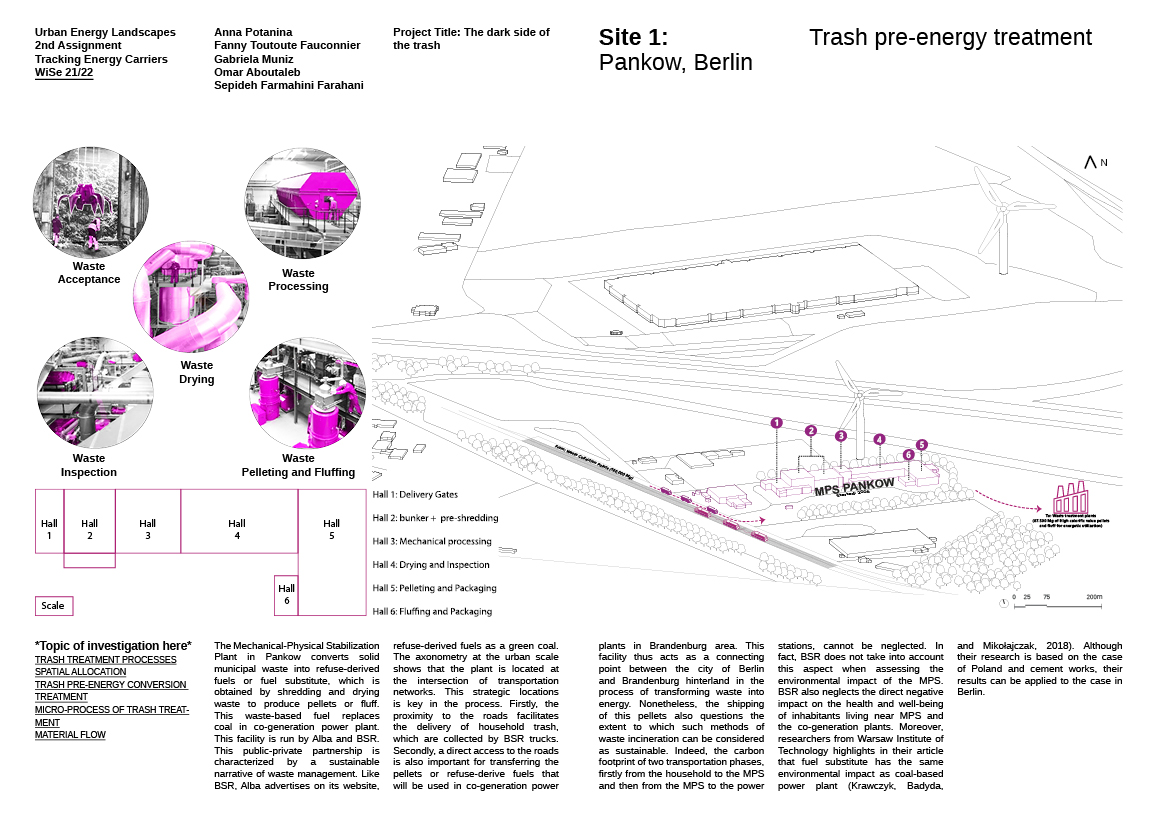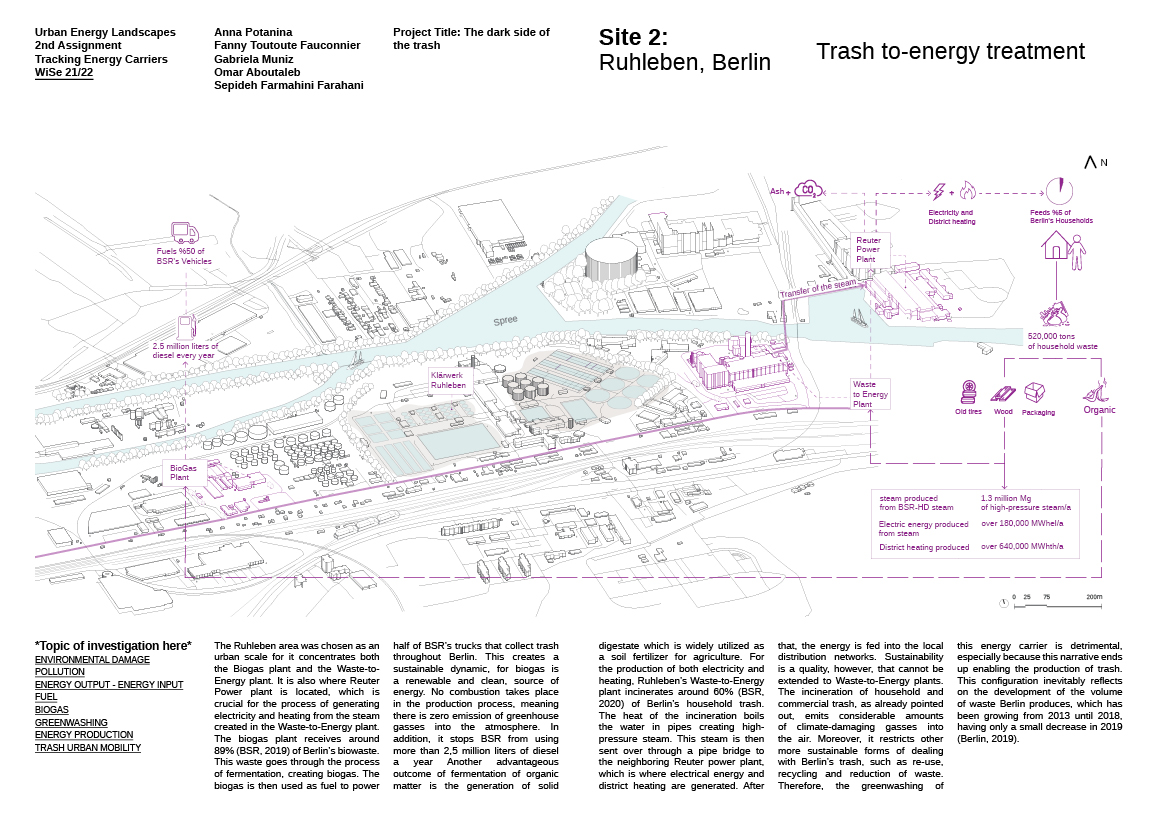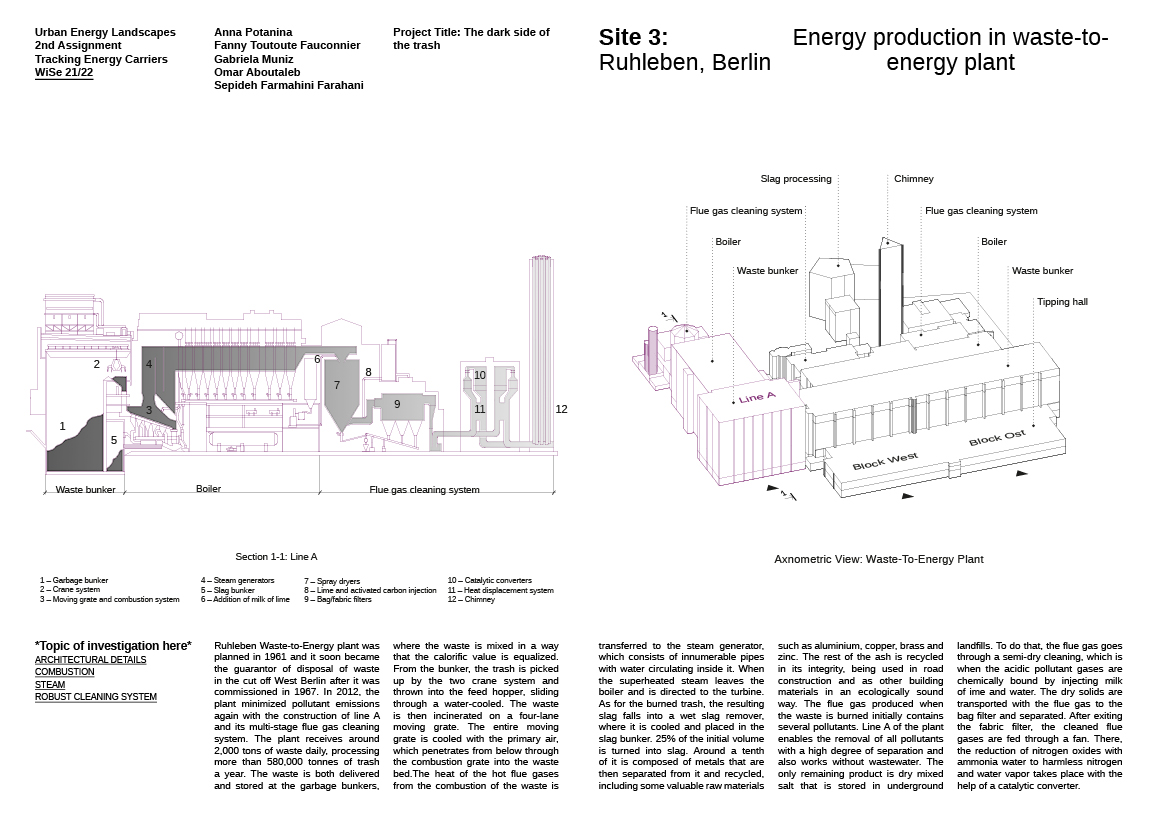Urban Energy Landscapes
Tracing:
Biofuels&Trash
By:
Mersede Eyni, Julius Grambow, Kilian Schneider & Louis Speer
Anna Potanina, Fanny Toutoute Fauconnier, Gabriela Muniz, Omar Aboutaleb, Sepideh Farmahini Farahani
Studio: WS 2022
“Urban Energy Landscapes”
Prof. Dr. Elke Beyer
David Bauer
Rosa Pintos Hanhausen
Support by:
Katerina Marečková
Ludwig Thanhäuser
Veit Vogel
Habitat Unit
Biofuels
During the COVID-19 pandemic, dusty binaries ran across feuilletons in German tabloids. Even in 2021, the assumed polarisation between the city and its hinterland issued journalists to state that “Almost Every Second Berliner Wants to Move Away”, whilst various “Incentives for Moving to the Countryside” led to the recurring question: “Is the Land our Future?”
In all its validity, questions concerning our future are most likely going to reinforce existing imbalances. In the climate emergency, aggravated by the global pandemic and the resulting digitalisation, energy supply might become the most immediate instrument to measure our capacities for sustainable system thinking. What are the alternatives for our current landscapes of extraction?
Trash
Going into the research we knew that turning trash into energy is certainly more environmentally-friendly than dumping it in landfill, because landfills not only emit methane, a very climate-damaging gas, but it also leads to air, water, and soil pollution. Our goal going into our research was to investigate the extent to which incinerating waste for energy production can be considered as a sustainable alternative.
The waste hierarchy pyramid ranks the different methods of waste disposal from the worst to the best ones. Energy recovery is right in the middle of it, being a better solution than openly burning/dumping trash and landfill, but a worse choice than recycling, re-use and, best of all, waste reduction. Even though BSR, the public company mainly responsible for trash management in Berlin, insists on calling the incineration of trash “clean energy”, that rhetoric could not be further from the reality. The greenwashing of this energy carrier is detrimental, especially because this narrative ends up enabling the production of more trash and prevents waste from being recycled.
BB2040
[EN] Berlin Brandenburg 2040 was initiated by the Habitat Unit in cooperation with Projekte International and provides an open stage and platform for multiple contributions of departments and students of the Technical University Berlin and beyond. The project is funded by the Robert Bosch Foundation.
[DE] Berlin Brandenburg 2040 wurde initiiert von der Habitat Unit in Kooperation mit Projekte International und bietet eine offene Plattform für Beiträge von Fachgebieten und Studierenden der Technischen Universität Berlin und darüberhinaus. Das Projekt wird von der Robert Bosch Stiftung gefördert.
